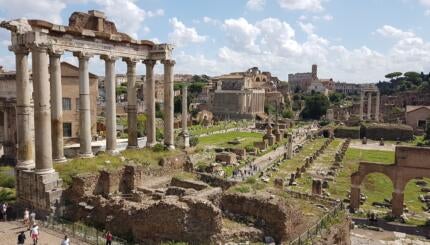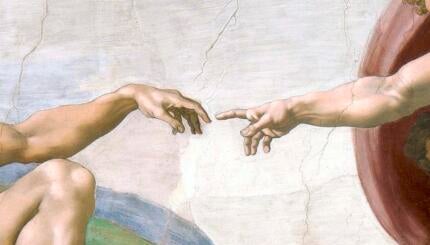It was August 1966, the summer before my senior year of high school, and I was attending a Reform movement summer camp in Wisconsin when Elie Wiesel came for a visit.
Wiesel’s Night, a spare, searing memoir of the 11 months he spent in Auschwitz and Buchenwald, had been published in English just a few years before. Now Wiesel would come to a different kind of camp to meet with a bunch of American high-schoolers to get a taste of our experience and offer us a window into his.
The day of his arrival, I saw him from afar walking with the rabbis, a thin, dark-haired man, chest concave — enwrapped, it seemed to me, in a mist of sadness, not fully of this world. I had not yet read Night, but I knew that he had lived through something unimaginable, and I was both drawn to him and vaguely horrified, as if I were about to approach someone bearing a grave, open wound.
That afternoon we sat rapt, packed into the airless Quonset hut that served as our social hall, listening to Wiesel describe what he endured and barely survived some 20 years earlier, when he was the same age as his audience. He spoke in a low voice, devoid of affect. I don’t remember the particulars, but I can still feel the reverberations in my body. You could have heard a pin drop as we strained to understand his Romanian-Yiddish accented English.
With your help, My Jewish Learning can provide endless opportunities for learning, connection and discovery.
I had been asked to write a poem expressing the essence of philosopher Martin Buber’s concept of I and Thou, the idea that one may experience the divine by being wholly present with another. That night I read my poem during the evening service in our outdoor chapel, stars shimmering above the treetops. Wiesel sat quietly at one end of a wooden bench, folded into himself. As the service ended, he approached me, gripped my arm with a ferocious strength and said with quiet intensity, as if to emboss the words on my soul, “Dat vas veddy gud.” Thrilled, I ran off by myself to lie beneath the stars and savor his praise.
I wonder what it must have been like for this European refugee, a survivor destined for greatness as a writer, speaker, teacher, activist and eloquent witness to the destruction of European Jewry, to encounter a group of well-fed, comfortable American teenagers, enjoying our privileged suburban lives, just waking up to the racial injustices in our own country and to the war gathering steam in the jungles of southeast Asia, but mostly oblivious to the suffering in so much of the world, even to the traumas embedded in our own lineages.
For me, meeting him was an initiation, a window into a world of religious piety, human suffering and courageous resilience. I sensed in him a kindred poet-mystic, as perhaps he did in me. At his request I sent him my Buber poem and others. He sent back notes of encouragement, which I keep in a manila folder marked “Historical Materials,” and which I read from time to time, a memento of my younger yearning self, reaching for a connection backward in time, outward to the world, and inward to my own soul. Perhaps Elie Wiesel would have been less surprised than I to find myself, some 40 years later, being ordained as a rabbi.
I have often reflected on the ten years it took Wiesel to begin to write or speak about the horrors he experienced. Maybe like Moses, he had to spend time in the wilderness tending other flocks before the call to speak for the living and the dead flamed up in him like a burning bush, unquenchable. Perhaps his heart still needed to hold on to the boy he had been before the war, measuring the weight of his anger, shame and grief before he could speak the unspeakable.
How much longer has it taken a shocked humanity to begin to process those devastating years of the Holocaust. Two decades of relative silence gave way to what has become, more than 75 years later, a flood of memoir, film, poetry, fiction, choreography, museums and monuments, mostly created and curated not by those who lived it, but by their children and grandchildren. It has taken lifetimes — generations of slow digestion and gradual openings of heart and mind.
How much time, how much holding does it take for a collective nightmare to be felt through and digested? The prophet Ezekiel, speaking to his own vanquished people in exile nearly 2,500 years ago, offers God’s stunning promise of renewal: “I will give you a new heart and put a new spirit within you; I will remove the heart of stone from your flesh and give you a heart of flesh.”
In this time of polycrisis, when images of horror and destruction flash across our computer screens hourly, I wonder how long it will take to revivify our hearts, how many generations to begin to feel, absorb and heal.
This article initially appeared in My Jewish Learning’s Shabbat newsletter Recharge on Jan. 20, 2024. To sign up to receive Recharge each week in your inbox, click here.



